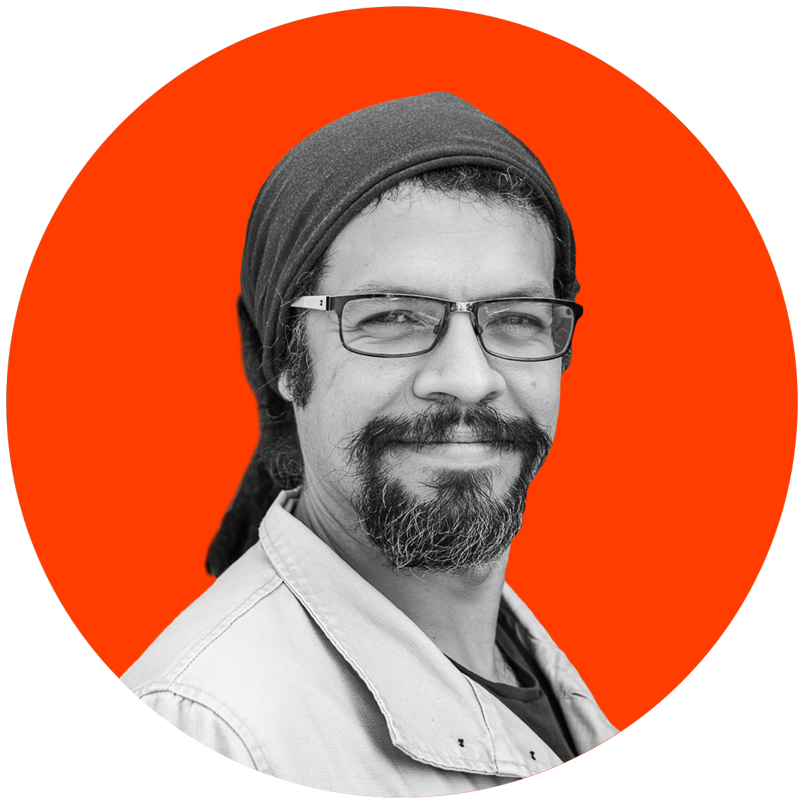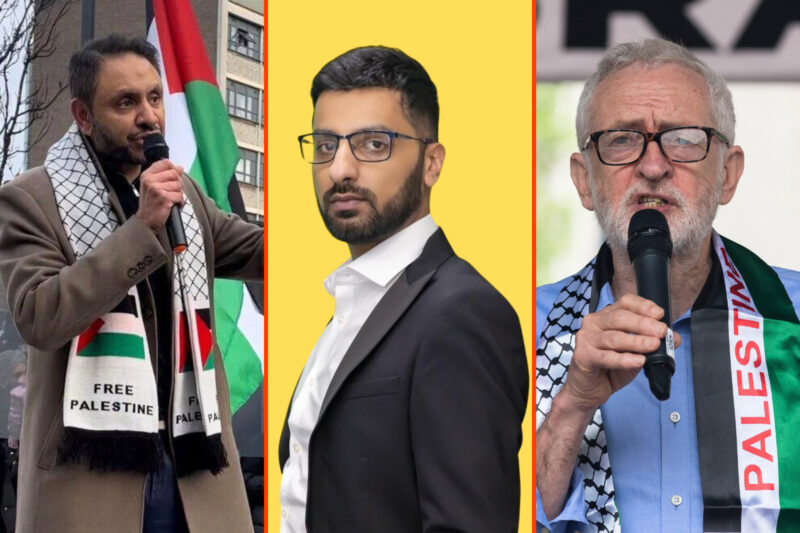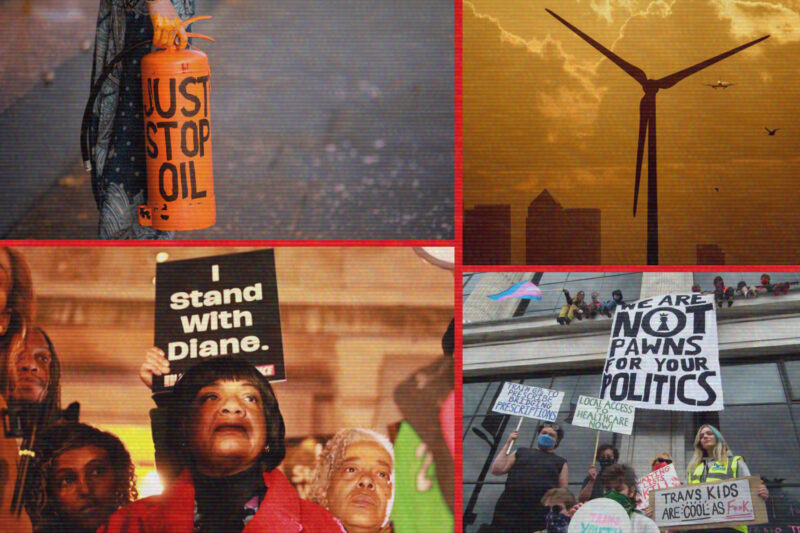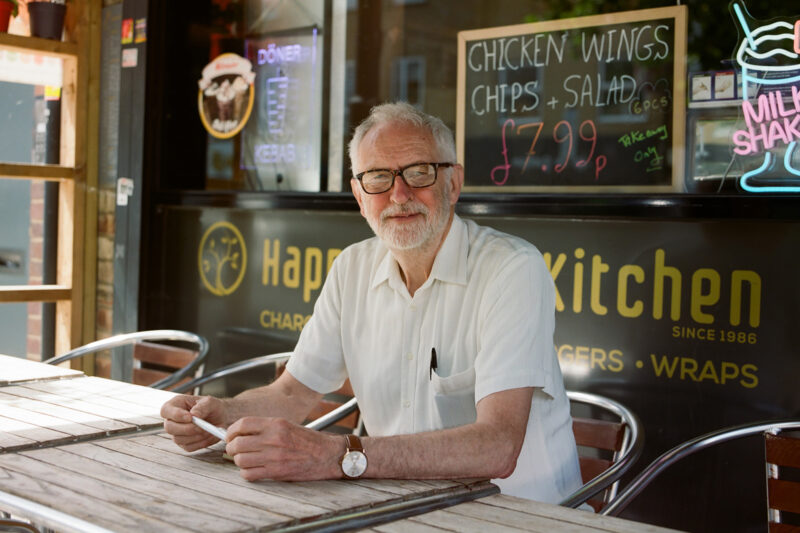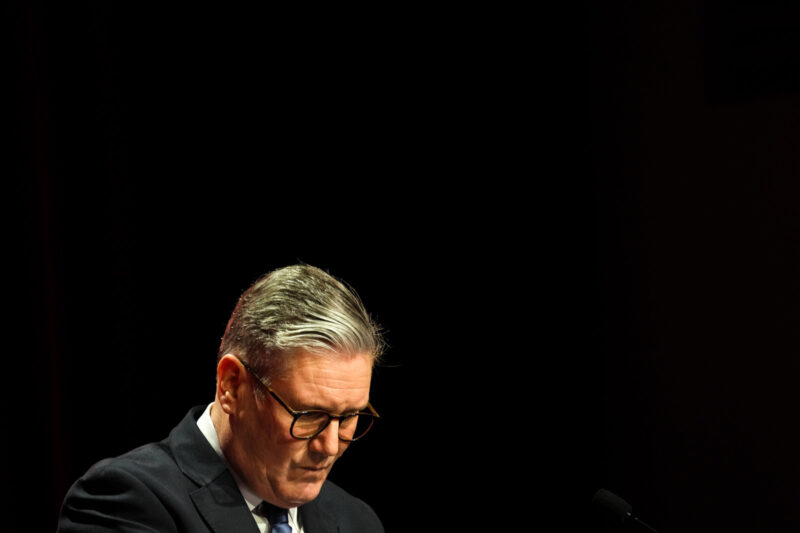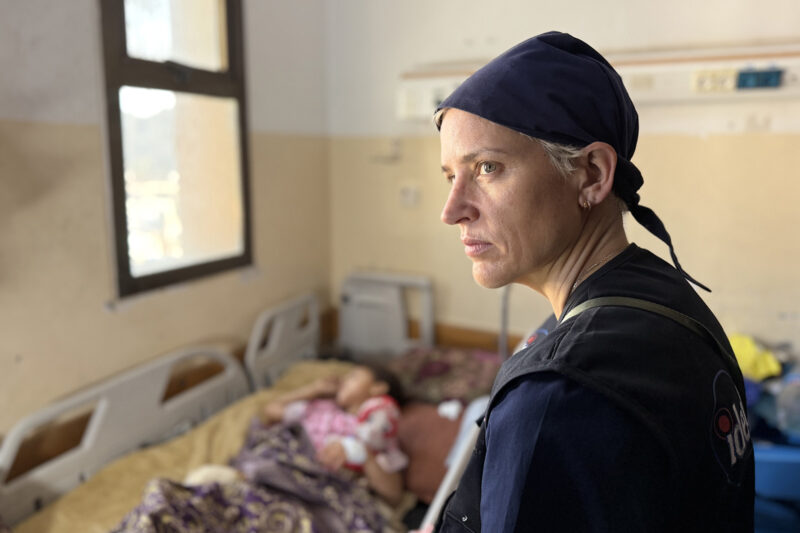
Kamel Hawwash Q&A: ‘Political parties have a machine, I don’t’
Independent candidate Kamel Hawwash is seeking to overturn Labour’s majority of 12,000 in the constituency of Birmingham Selly Oak. Photograph courtesy of Kamel Hawwash
The academic, engineer and outgoing chair of the Palestine Solidarity Campaign, on standing for parliament in Birmingham and how Gaza has changed the political landscape
Kamel Hawwash is a Saudi-born academic and civil engineering professor at the University of Birmingham and chair of the Palestine Solidarity Campaign. He is a former Labour party member now standing as an independent parliamentary candidate on a pro-Palestine platform.
Hawwash is seeking to overturn Labour’s majority of 12,000 in the constituency of Birmingham Selly Oak. The seat is currently held by Steve McCabe, chair of Labour Friends of Israel, who is standing down at this election. While Hawwash’s campaign is focused on challenging the UK’s position on Israel-Palestine, he has also pledged to fight any privatisation of the NHS and cuts to public services in Birmingham.
What was your first political memory?
In the UK, I remember that Margaret Thatcher was elected the first female Conservative party leader and she made a big impact on the country. I don’t want to comment on whether that was good or bad, but that’s the first political memory that I have.
What was your first political action?
I wasn’t involved in anything political, really, until Israeli prime minister Ariel Sharon’s decision to reoccupy the Palestinian territories during his time in office. I couldn’t believe the brutality. It was a decision by a country that claims to be a democracy to kill and maim and destroy and occupy illegally. So I began to engage with my local MP to ask him to do something in the UK. In Birmingham, I saw a store with the Palestinian flag and it turned out to be the local branch of the Palestine Solidarity Campaign.
How did that lead you to become a public figure?
After meeting this local group of the PSC and seeing a talk given by Fadwa Barghouti [wife of jailed Palestinian leader Marwan Barghouti] I decided to join the Palestinian Solidarity Campaign. A couple of years later, I stood to be on the executive committee and, five years ago, I became the elected chair for a five-year term. During that period, I also became a commentator on issues like Brexit in Arabic language media, and more recently on the war in Ukraine.
Was being chair of the PSC good political training for your current candidacy?
The PSC is not meant to be party political. We campaign for Palestinians across all the parties. However, there’s no doubt that it was Palestine and Gaza that has shaken the political system in the UK. I think anyone who looks at the number of independent candidates standing in the election will see that this is unprecedented.
Do you think voters are engaged with the issue of Palestine and Gaza?
I never thought I would see 15 protests with over 100,000 people at each one. And if another one is called tomorrow, there’ll be just as many attending because people are appalled. They’re angry with their government siding with Israel. And so the next question is, what else can we do? This is why people are standing as independents.
Are you a single-issue candidate or are there other issues that you’re seeking to raise in this election?
I originally chose to stand in Birmingham Selly Oak, which is next to where I live, because the sitting MP, Steve McCabe, was the chair of Labour Friends of Israel. He decided to stand down in this election, so the Labour party chose Alistair Carns, a former colonel, who served in Afghanistan.
The same people who were at my campaign launch because of the situation in Palestine are also facing the cost of living crisis, high energy bills and long waits on the NHS, and their children are ending up in debt after leaving university.
Birmingham city council, which is the largest local authority in Europe, is also bust. So there will be cuts to services like libraries and care and community centres. These are all issues that impact the residents of this constituency. I believe I can be a good representative for the people of Selly Oak, regardless of where we started, which was the issue of Gaza.
What does your campaign look like on the ground?
I am very fortunate to have a fantastic campaigning team. I’ve got two women who are my campaign managers, and who happen to be Muslim. I have an election agent who’s Sikh and 100 other people from all backgrounds who are supporting the campaign. Every day, there’ll be people out on the street delivering leaflets while I’m talking to community organisations about their issues.
How is it going up against the big parties?
Parties have a machine. I don’t. One of the key things which may determine the election is that the Labour party will have phone numbers of all their supporters. So they can phone them and remind them to go and vote on the day. I have no phone banks, no phone numbers, so you have to present yourself to the constituents for them to know who you are.
Have you encountered racism or Islamophobia as a candidate?
No, not up to now. This is a really tolerant country. I came here in 1977 and whenever people ask me why I stayed, I say this is a really tolerant place. Compared with other European countries, there’s a huge difference in the acceptance of people.
By profession, you’re an academic and civil engineer. How do you feel those professions compare to politics?
They say engineers are problem solvers, and this country has lots of problems. The training, hopefully, will help me identify, analyse and then work on a solution to problems. I believe I can ask the right questions and hold the government to account.
 Newsletter
Newsletter

